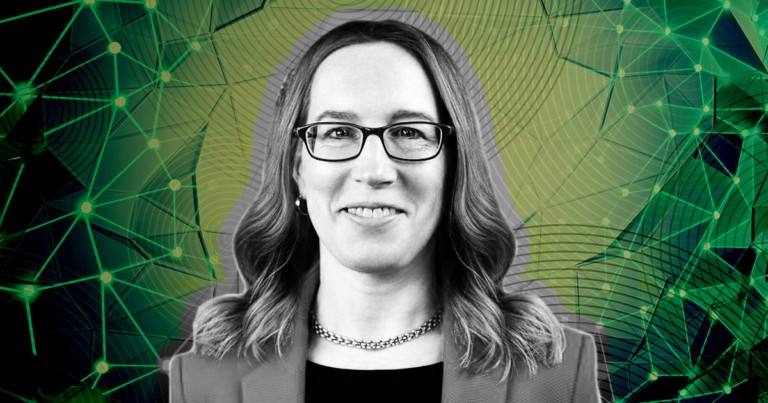 SEC’s Hester Peirce says crypto industry should not wait for regulators to solve problems
SEC’s Hester Peirce says crypto industry should not wait for regulators to solve problems SEC’s Hester Peirce says crypto industry should not wait for regulators to solve problems
SEC Commissioner Hester Peirce advocates for a more transparent and collaborative approach to crypto regulation, emphasizing the importance of decentralization and the diversity of the crypto space.

U.S. Securities and Exchange Commission / Public Domain. Remixed by CryptoSlate
SEC Commissioner Hester Peirce called for the crypto industry to attempt to solve issues that plagued it during 2022 without waiting for regulators to act.
Peirce made the comment during a speech at the Duke University Digital Assets Conference on Jan. 20.
Crypto is burning
Peirce argued that “much of the crypto world is burning” in a fire lit by bad actors.
“The fires that bad and careless actors lit in the crypto world last year offer lessons for the new year… People within the crypto industry and those of us who regulate it could stand to learn something from the terrible, horrible, no good, very bad year of 2022.”
However, the commissioner also said that it takes time for technology as innovative as blockchain to find its feet — and while a new industry is evolving, it can look “downright harmful” to outsiders looking in.
Peirce said it is up to those building in the blockchain space to establish its true value proposition, not advocates or proponents sitting on the sidelines. Furthermore, she put the onus on developers to “fix” any issues in the space rather than waiting for regulatory guidance.
“People who believe in crypto’s future is that they should not wait for regulators to fix the problems that bubbled to the surface in 2022.”
Regulatory progress
Peirce said that progress is being made within the SEC regarding crypto regulation. For example, blockchain-empowered companies take “longer than normal” to navigate SEC registration but are not unilaterally denied enrollment.
The current SEC process involves giving notice to projects that enforcement will not be actioned “if certain conditions are met.” Peirce said she supports the “notice and comment process,” but added that “it may be appropriate to be flexible in applying existing disclosure requirements.”
Peirce said the SEC’s current system needs improvement to help make the process smoother for those looking to work within the law. She said:
“The SEC needs to conduct better, more precise, and more transparent legal analysis… that results in what one lawyer has dubbed “regulation by anxiety.” Operating in such an opaque environment is very stressful for law-abiding people.”
Peirce believes that a nuanced approach to crypto regulation may be required on top of recognizing the varying sectors within the blockchain space. For example, much of the SEC’s regulatory guidance is designed for centralized entities and, thus, may not work for decentralized projects.
Peirce said:
“A more tailored crypto disclosure regime would be good for investors and crypto companies.”
Protecting decentralization
In a bold statement, Peirce also remarked that some baked-in DeFi tools might allow the world of decentralized finance to offer self-regulation. She said:
“DeFi deserves special consideration because of its unique properties, some of which take the place of functions that regulation otherwise might perform.”
Peirce’s understanding of the nuanced nature of the blockchain space is evident throughout her speech. She also rejected SBF’s recommendation that front-end DeFi portals be the target of regulation rather than the underlying codebase, as it would undermine the decentralized nature of the industry. According to Peirce:
“Attempts to force DeFi into a traditional regulatory framework likely would produce a system in which a few large companies operated registered DeFi front-ends. Sounds a lot like centralized finance.”

























































